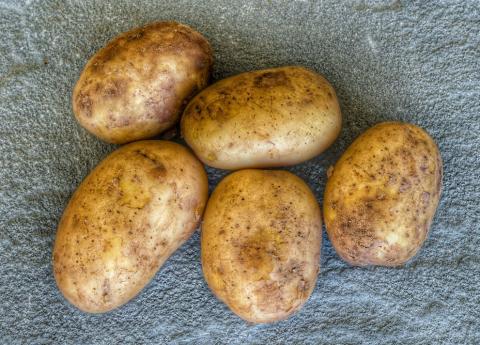‘Knocking out susceptibility genes by genome editing in potatoes could be a durable option to increase resistance.’
DMR6 has been described as a susceptibility gene in several potato crops, based on data that indicates increased resistance upon interruption of the gene function.
In potato, Stdmr6-1 mutants have been said to have increased resistance against the late blight pathogen Phytophthora infestans in controlled conditions.
Oxford Acadamic researchers’ field evaluations of CRISPR/Cas9 mutants, in a location with a complex population of P. infestans, during four consecutive years, have indicated increased resistance to late blight without any trade-off in terms of yield penalty or tuber quality.
Furthermore, studies from potato tubers from the field trials indicated increased resistance to common scab, and the mutant lines exhibit increased resistance to early blight pathogen Alternaria solani in controlled conditions.
Early blight and common scab are problematic targets in potato resistance breeding, as resistance genes are very scarce.
The described broad-spectrum resistance of Stdmr6-1 mutants may further extend to some abiotic stress conditions. In controlled experiments of either drought simulation or salinity, Stdmr6-1 mutant plants are less affected than the background cultivar.
“Together, these results demonstrate the prospect of the Stdmr6-1 mutants as a useful tool in future sustainable potato cultivation without any apparent trade-offs,” researchers Milla Karlsson and Nam Phuong Kieu state in their newly-released report.
Download the full report below.
Milla Karlsson, Nam Phuong Kieu, Marit Lenman, Salla Marttila, Svante Resjö, Muhammad Awais Zahid, Erik Andreasson, CRISPR/Cas9 genome editing of potato StDMR6-1 results in plants less affected by different stress conditions, Horticulture Research, 2024;, uhae130, https://doi.org/10.1093/hr/uhae130


